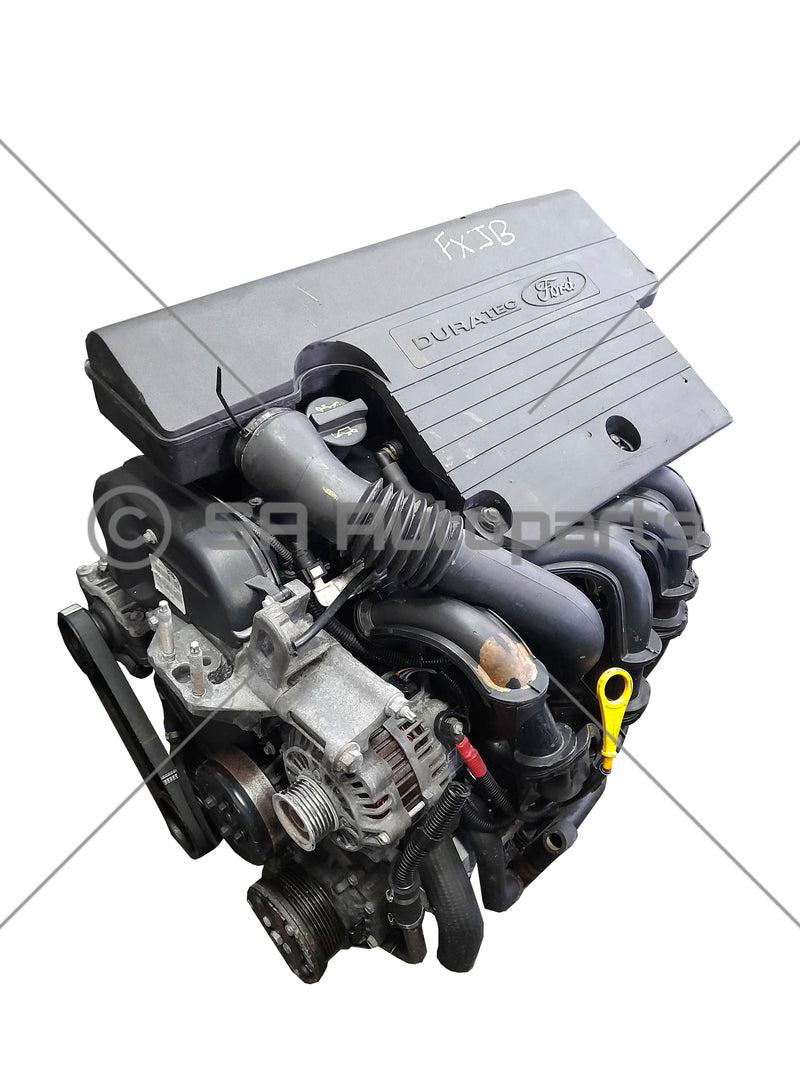Opening the Power of Engines: A Comprehensive Guide to Efficiency and Efficiency
Recognizing the detailed mechanics of engines is vital for both performance lovers and everyday vehicle drivers. The solutions might redefine our strategy to engine performance and effectiveness in means that are both enlightening and necessary.
Understanding Engine Basics
What comprises the basic mechanics of an engine? At its core, an engine is a maker developed to transform gas into mechanical energy with a collection of controlled surges or combustion processes.
The crankshaft after that changes this direct motion into rotational power, which inevitably powers the automobile. The camshaft regulates the opening and closing of the valves, controling the consumption of air and gas and the expulsion of exhaust gases. Furthermore, the engine depends on a very carefully adjusted fuel-air mixture, ignition system, and cooling down system to make sure ideal efficiency and effectiveness.
Recognizing engine fundamentals also entails acknowledging the relevance of engine cycles, such as the four-stroke cycle, that includes consumption, exhaust, compression, and power strokes. Each phase is vital in making certain the engine operates efficiently and successfully. Mastery of these fundamental technicians prepares for discovering more complicated engine characteristics and performance metrics, necessary for optimizing both power outcome and efficiency.
Trick Performance Metrics
Trick efficiency metrics are important for examining an engine's effectiveness and power outcome, supplying useful understandings for both customers and suppliers. These metrics offer as criteria for engine efficiency, permitting educated decisions in purchasing, layout, and manufacturing.
Among the key metrics is horse power, which quantifies the engine's capacity to execute work over time. Torque, gauged in pound-feet, is one more critical statistics that suggests the engine's rotational force, straight influencing acceleration and towing capacity. Gas efficiency, generally measured in miles per gallon (MPG) or liters per 100 kilometers (L/100km), evaluates just how properly the engine converts fuel into motion, influencing ecological considerations and operational costs.
Furthermore, thermal performance measures exactly how well an engine converts gas power into valuable job, exposing insights right into energy losses primarily with warm. Discharge degrees, consisting of CO2 and NOx, are also essential, reflecting the engine's environmental impact and compliance with regulative criteria.

Tuning Methods for Effectiveness
Tuning methods play a significant function in enhancing engine efficiency by enhancing efficiency metrics identified in earlier conversations (ford fiesta engine). Different approaches exist to tweak an engine, each adding to enhanced gas economic situation and decreased discharges
One effective strategy is adjusting the air-fuel proportion, making certain the engine operates review within the optimal burning regimen. A leaner blend can boost fuel efficiency, however it must be balanced to stop misfires or engine knock. In addition, reprogramming the engine administration system can alter criteria such as ignition timing, which additionally enhances efficiency while keeping power output.
An additional crucial approach includes modifying the consumption and exhaust systems. Upgrading to high-performance air filters and exhaust headers can minimize back stress, helping with much better air movement. This enables the engine to breathe even more easily, causing enhanced burning efficiency.
Furthermore, the execution of sophisticated adjusting tools, like dyno testing, provides specific data that allows targeted changes. Routinely monitoring these efficiency metrics makes certain that tuning initiatives yield the preferred effectiveness outcomes. Collectively, these methods not only strengthen engine performance however additionally add to long-lasting sustainability in engine procedures.
Upkeep for Ideal Performance
Routine engine upkeep is crucial for attaining optimal efficiency and longevity. A properly maintained engine not only runs successfully however likewise decreases the danger of costly fixings and break downs. Key components needing routine focus include oil, filters, belts, and spark plugs.
Transforming the engine oil at advised periods is critical, as oil lubes relocating components and avoids overheating. In a similar way, replacing oil and air filters makes certain that impurities do not harm engine function. Disregarding these elements can cause reduced effectiveness and possible engine damage.
Additionally, evaluating and changing worn belts and hose pipes is crucial to protect against unexpected failures. Timing belts, particularly, must be changed according to the manufacturer's timetable to stay clear of devastating engine damages.
Glow plugs must likewise be examined and changed as required, since they play a crucial function in ignition and fuel efficiency.
Future Trends in Engine Technology
Accepting useful content advancements in modern technology, the future of engine style is positioned to reinvent performance and effectiveness throughout various applications. Crossbreed and completely electric powertrains are ending up being increasingly conventional, providing reduced emissions and enhanced fuel performance.
Additionally, advancements in materials scientific research are causing lighter, stronger parts that boost engine performance while reducing power usage. Advanced production techniques, such as 3D printing, permit the development of complicated geometries that enhance air movement and thermal administration, hence optimizing combustion procedures.
Furthermore, the combination of artificial knowledge and device discovering is set to transform engine diagnostics and performance adjusting. These technologies can examine large quantities of information in genuine time, making it possible for anticipating maintenance and tailored efficiency improvements.
Verdict
In final thought, unlocking the power of engines calls for a comprehensive understanding of their auto mechanics and read review performance metrics. Carrying out efficient tuning techniques and sticking to routine maintenance methods dramatically boost engine abilities. As the automotive landscape progresses, accepting future patterns in technology, including electrification and advanced manufacturing, will be vital for optimizing performance and efficiency. This thorough method not just advantages lovers but likewise contributes to lasting options in the realm of automobile engineering.
In addition, the engine relies on a very carefully adjusted fuel-air mixture, ignition system, and cooling down system to make certain ideal performance and effectiveness.
Comprehending engine fundamentals also includes recognizing the relevance of engine cycles, such as the four-stroke cycle, which includes consumption, power, exhaust, and compression strokes. Proficiency of these fundamental auto mechanics lays the foundation for discovering more complex engine characteristics and efficiency metrics, crucial for maximizing both power result and effectiveness.

Accepting innovations in technology, the future of engine design is positioned to change performance and efficiency throughout different applications.